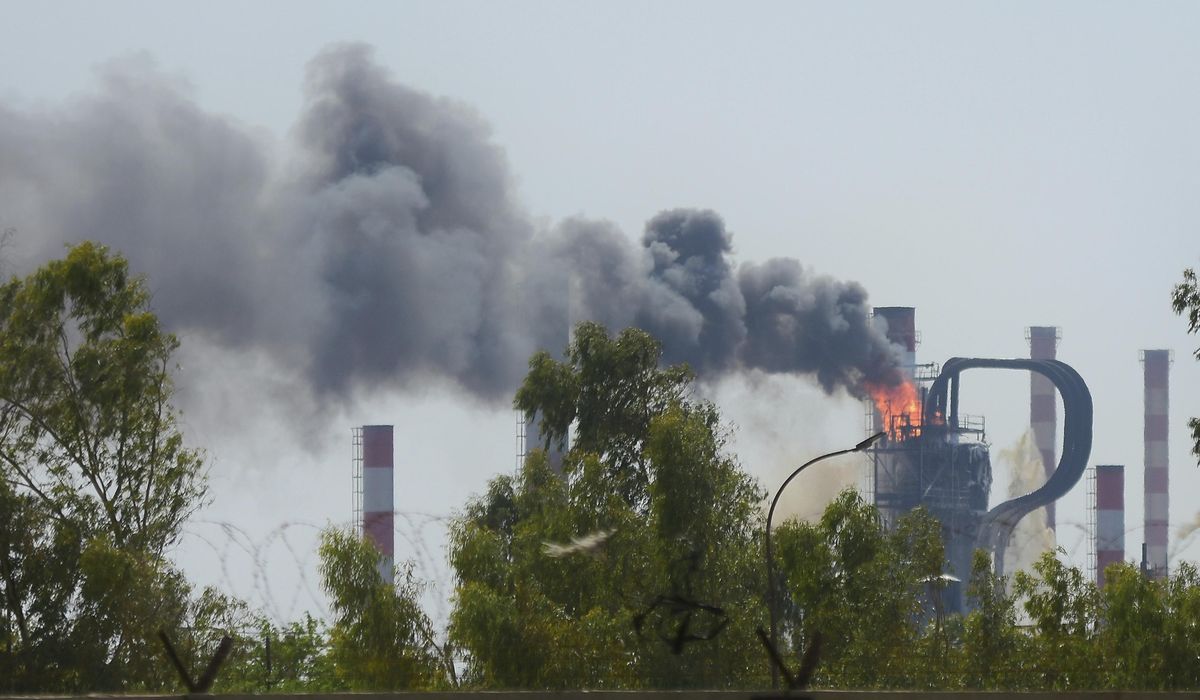


Iran has faced explosions at industrial centers, apartment complexes, an airport and an oil refinery, all a month after its ceasefire with Israel.
While Tehran offers vague explanations, some officials are speculating about Israeli involvement in the incidents.
Since the beginning of July, at least four residential buildings have exploded in Iran. The regime has insisted all of the eruptions were the result of a gas leak, despite reporting to the contrary. One such explosion rocked a housing complex for Iran’s Armed Forces Judicial Organization in Tehran, despite the complex not being connected to a gas grid.
Additionally, an explosion on the first floor of a residential building in Qom, also attributed by the regime to a gas leak, caused substantial damage that is leading some to question Tehran’s explanation. The explosion injured seven people, according to state-affiliated media.
Some suggest the amount of gas necessary for such an explosion would have killed residents in the building.
Iranian officials denied that a plume of smoke spotted at Mashhad Airport on July 13 came from an explosion. According to airport officials, the smoke was the result of the controlled burning of dry weeds at the edges of the landing platform.
Meanwhile, Mashhad city residents reported several unexplained fires in the area on July 14 and 15.
Just four days later, a massive fire was reported at Iran’s Abadan oil refinery. According to Tehran officials, the fire killed at least one worker before authorities put out the blaze. State-affiliated media reported that the fire was caused by a leaky pump that’s under repair.
Despite suspicions from the public, Tehran has maintained that the explosions and fires are not the result of sabotage and are completely natural. State-affiliated news agency Fars issued a report this month tying claims that the incidents are sabotage to postwar trauma.
“The human mind tends to generalize high-impact events (such as war) to everyday events. This phenomenon is called the ‘halo effect’ in psychology. That is, a major event (such as a conflict with Israel) casts such a shadow over our minds that we associate every small incident with it,” the report reads. “If we think the enemy is wreaking havoc, we see every incident as evidence of this claim.”
The Iranian public has reacted to the explosions and explanations with a mix of suspicion and humor, with AI-generated images of Israeli Prime Minister Benjamin Netanyahu wearing a National Iranian Gas Co. uniform popping up on social media.
The X account Mossad In Farsi has also acknowledged the mysterious explosions.
“Explosion after explosion. Someone needs to check what’s going on there. Too many random incidents are happening,” the account wrote on July 12.
Some in the Iranian intelligence community believe that the explosions and fires are anything but natural. A New York Times report from Wednesday cited three unnamed Iranian officials who said at least some of the incidents are not accidents.
The Times also cited an unnamed European official who said he believed Israel was involved in the explosions.
The anonymous sources did not provide any evidence for their claims, and Israel has not claimed responsibility for the explosions.
Since the ceasefire agreement was finalized late last month, Iran has instituted a crackdown on alleged Israeli-affiliated spies inside Iran.
Iran has executed at least six people with alleged ties to Israeli spy networks and has arrested more than 700, according to state media.
While Israel has admitted that its intelligence connections in Iran are extensive and helped coordinate strikes last month, Iran may not want to publicly accuse Israel of sabotage. Such an accusation could reignite the conflict.
Mossad Director David Barnea reaffirmed Israel’s intentions to continue intelligence operations in Iran.
“We are committed to continuing to act resolutely to prevent a future threat from Iran to Israel and to strive to maximize the strategic opportunities before us,” he said.
• Vaughn Cockayne can be reached at vcockayne@washingtontimes.com.
